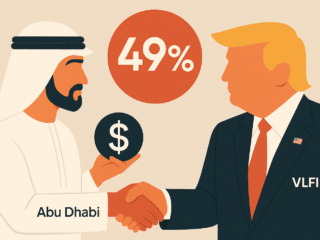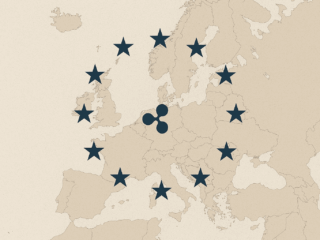South Korea’s CBDC pilot project begins in April with 100,000 private and commercial participants

- In April 2025, the South Korean central bank will start a CBDC pilot project, in which 100,000 participants participate, among them also large banks to test digital transactions.
- The pilot project enables customers to convert bank credit into digital tokens, use them at selected dealers and to test the payment processing in real time.
The Bank of Korea (BOK) is planning a large -scale attempt with its digital central bank currency (CBDC), called “Hangang” from April 2025, the program should give 100,000 participants access to digital tokens as an alternative to regular financial transactions, reports the Korea Times.
Seven large South Korean banks – including KB Kookmin, Shinhan, Hana, Woori, NH Nonghyup, BNK Busan Bank and Industrial Bank of Korea – help with the implementation of the experiment.
How the CBDC test works
During the three -month test period that ends in June, the participants can exchange credit from their regular bank accounts for digital tokens. These tokens can then be used in various partner shops such as Ediya Coffee, Kyobo Bookstore, Hanaro Mart and 7-Eleven. Payments with the system to e-commerce websites such as Hyundai Home Shopping are also accepted.
However, the benefit of the system is limited. With a transaction limit of a total of five million weeks during the experiment, each person can only have a maximum of one million WON (about $ 690) in digital tokens. With this restriction, the BOK wants to ensure that the use of CBDC does not endanger the stability of the current financial system.
More efficiency with digital tokens
The main reason for the start of this program was to find out whether a CBDC system could rationalize the payment and processing processes. Nowadays, transactions are sometimes required for transactions that slow down the process and increase the administrative costs.
The real-time processing of transactions made possible by this token background system can get payments faster without having to fall back on conventional banking systems.
The BOK assumes that this approach will reduce the need for financial agents in regular transactions. If the results are positive, this could be the first step towards the general acceptance of CBDC in South Korea.
South Korea revised its crypto regulations for the banks
While the BOK is working on a CBDC, the regulations for digital assets in South Korea are also developing. On February 13, the South Korean Financial Service Commission declared its intention to remove a rule that prohibits financial institutions trading in cryptocurrencies.
If politics is implemented, companies and law enforcement authorities, charity organizations and universities will be able to sell their digital assets in the first half of this year.
Conversely, the tax laws are more strict. In November 2024, the city of Paju warned that its crypto assets could be confiscated if they did not pay their tax debts immediately.
This step is part of a larger nationwide campaign in which the tax offices have started to concentrate on people who hide money in the form of digital assets. Large cities such as the Gangnam district in Seoul have started to check almost 2,000 citizens who are supposed to store their assets in cryptocurrencies.
Bitcoin rejected, but stable coin solutions were considered
As already mentioned in our report, South Korea is becoming increasingly open to digital assets; Nevertheless, the Bank of Korea Bitcoin continues to reject as a foreign exchange reserve. The main reasons for this are the great price volatility and the associated financial risks.
Instead, analysts advise South Korea to create a stable won-based coin that can combine the world of digital assets with traditional finance.
In addition, the CBDC project in development could offer a solution for the demand for a more consistent digital financial system. With the support of the government and the banks, South Korea is ready to include the leading nations in the acceptance of blockchain-based payment technology, without being dependent on volatile digital assets.








No Comments